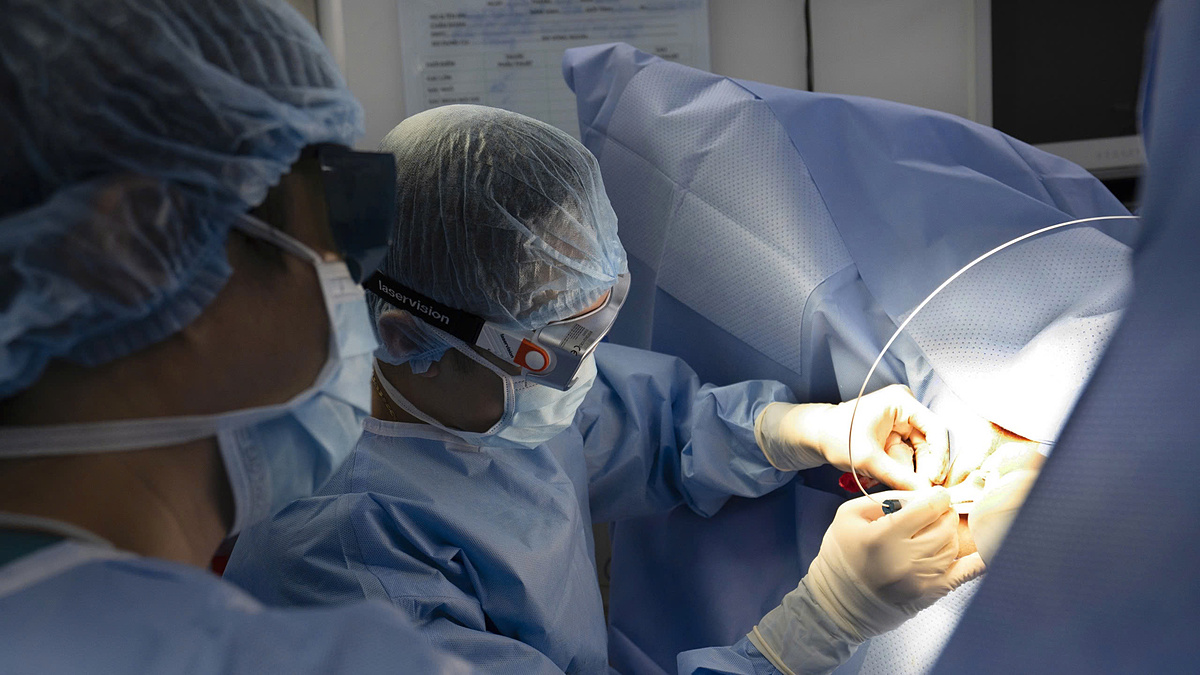"The rise of hemorrhoids in younger demographics is a consequence of modern lifestyles," Dr. Ta Anh Tuan, Director of Hoan My Saigon Hospital, stated at a seminar on laser treatment for hemorrhoids on 25/6.
Now, many people in their 20s and 30s are affected by hemorrhoids, a shift from the past when it primarily affected older adults. Studies point to 6 main causes of hemorrhoids in young people: being overweight or obese (BMI of 25 or higher), abdominal obesity (waist circumference over 90 cm for men and over 80 cm for women), pregnancy, depression (leading to eating disorders and reduced activity), lack of exercise, and dehydration. These factors create pressure on the anal-rectal area, leading to hemorrhoids.
Dr. Tuan explained that while hemorrhoids are not life-threatening, they cause significant discomfort and impact quality of life. Many patients avoid seeking medical attention due to the sensitive nature of the condition, which can delay treatment and potentially lead to more serious issues like polyps, tumors, or rectal inflammation.
Early detection allows for treatment through lifestyle changes and medication. For grade 2 hemorrhoids, minimally invasive procedures such as rubber band ligation, bipolar electrocoagulation, infrared coagulation, or sclerotherapy are often used. When the condition progresses to grade 3 or 4, with complications like bleeding, thrombosis, or infection, treatment becomes more complex, requiring invasive procedures that can be painful and carry a higher risk of complications and recurrence.
According to the Vietnam Society of Coloproctology (2024), laser surgery is an optimal solution that reduces post-operative symptoms, increases patient satisfaction, and improves quality of life. This method is suitable for patients with grade 2 or 3 internal hemorrhoids whose symptoms don't improve with non-surgical treatment.
Laser hemorrhoidoplasty doesn't directly cut the hemorrhoid but uses a laser to cauterize blood vessels, shrinking the hemorrhoid and sealing the tissue. This method minimizes anal mucosal scarring, reduces the risk of infection, bleeding, urinary retention, and anal stenosis, while also shortening treatment and recovery time.
 |
A doctor performing hemorrhoid surgery. Photo provided by the hospital |
A doctor performing hemorrhoid surgery. Photo provided by the hospital
To prevent hemorrhoids, it's essential to avoid risk factors, eat a high-fiber diet, drink at least 2.5 liters of water daily, maintain a healthy weight, and avoid prolonged sitting. Regular physical activity, such as brisk walking for 30 minutes daily, at least 5 days a week, is also recommended.
Seek medical attention promptly if you experience any unusual symptoms like anal discharge, itching, protruding lumps, or blood in the stool. Hemorrhoid surgery should be performed by an experienced doctor to effectively remove hemorrhoids while minimizing damage and preserving the function of the surrounding tissues, avoiding complications such as perforation, anal fistula, scar contraction, and impaired anal continence. Women are advised to treat hemorrhoids before pregnancy to prevent potential complications during gestation.
Le Phuong












